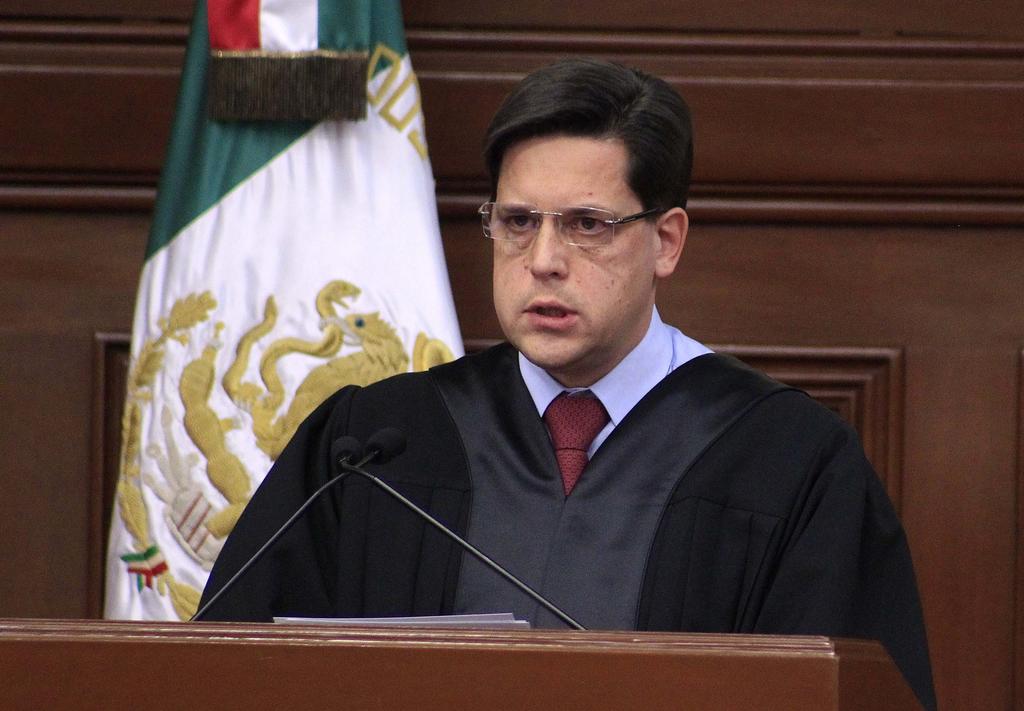MEXICO CITY, (Reuters) – Mexican Supreme Court Justice Alfredo Gutierrez will resign from the court at the end of August 2025, he said in a letter on Tuesday, the first of several resignations expected following a controversial judicial reform.
The move further heightens tensions between Mexico’s Supreme Court and the governing ruling bloc, increasing the risk of a constitutional crisis as Congress and the presidency remain at loggerheads with the judiciary over the reform.
Mexico is set to choose new Supreme Court justices in an election in June as part of the reform, which overhauls the judiciary to appoint judges by popular vote.
Current justices wishing not to participate in the election are required to announce their resignations by Friday, a source from the court told Reuters.
Eight of the court’s 11 justices are rumored to announce their resignation on Tuesday, Senate president Gerardo Fernandez Norona said in a press conference.
The 11-member Supreme Court, which will see its number reduced to nine as part of the reform, is considering a challenge over the reform’s constitutionality. Only three of the current justices have publicly backed the reform.
“It is necessary to underscore that this resignation does not imply an implicit acceptance of the reform’s constitutionality,” Gutierrez, who has been a justice since 2012, said in his resignation.
The constitutional reform proposed by former President Andres Manuel Lopez Obrador and passed last month by Congress with overwhelming support by ruling party Morena, paves the way for the popular election of more than 6,500 judges, magistrates and ministers, including Mexico’s Supreme Court.
The implementation of the reform and the countrywide elections it will entail now fall to new President Claudia Sheinbaum, Lopez Obrador’s mentee.
Gutierrez’s resignation is likely to be more symbolic than an action that provokes a real challenge to the reform, according to Gustavo Flores-Macias, a specialist in government and public policy at Cornell University.
The move “should be understood as a clear sign of protest” against the reform, Flores-Macias said. “He’s making a point in his resignation letter to highlight the importance of the judiciary remaining beyond the political tides of the moment.”
Morena’s strong push to overhaul the judicial system, with support from both Lopez Obrador and Sheinbaum, has provoked tensions with Mexico’s largest trading partners, the United States and Canada.
Lopez Obrador lashed out at the ambassadors of both countries for publicly criticizing the reform, saying relations were “suspended” with their embassies.
Sheinbaum and U.S. Ambassador to Mexico Ken Salazar have said in recent weeks that relations between the two countries continue as normal.

